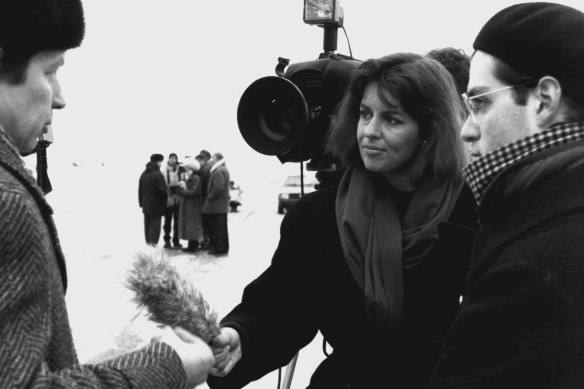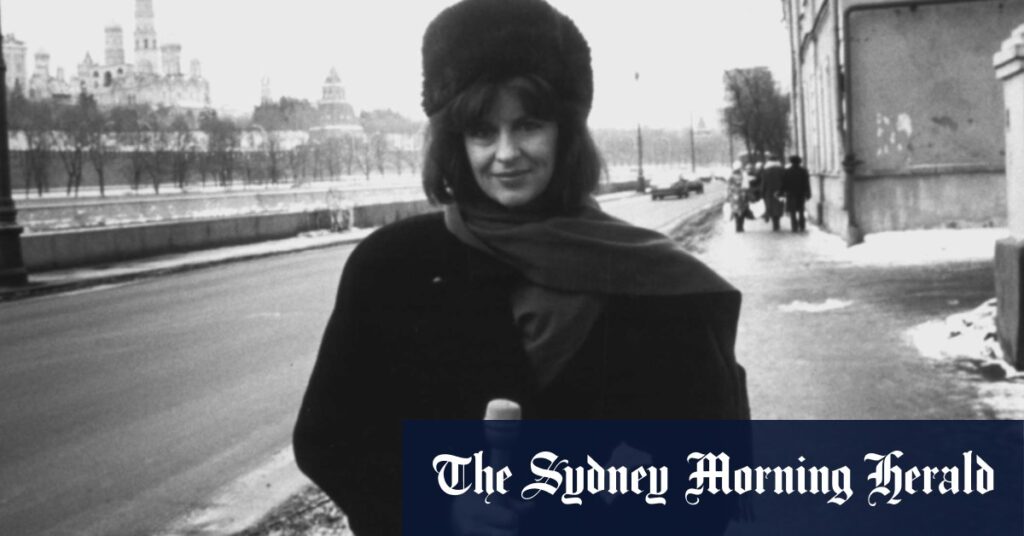It must have been late November, perhaps early December, when I got the call. Just enough time to squeeze in four Russian lessons before the departure date.
It was the summer of 1991, and I was about to embark on what would prove to be the most challenging and high-adrenaline assignment of my working life: a posting to Moscow for ABC TV, where I was soon to join esteemed radio colleague Monica Attard.
With a new year’s departure looming, I crammed in everything a Sydney summer could offer: beaches, ocean dips, barbecues, family gatherings and farewells, set against the raucous backdrop of cicada song.
ABC’s news and current affairs correspondent in Moscow Deborah Snow in October 1993.Credit: ABC
Over Christmas, I pondered what to take. My wardrobe had little to get me through a freezing Russian winter, and in those pre-online shopping days, Sydney stores at the height of summer weren’t going to be the solution.
My outgoing predecessor, John Lombard, suggested doing what he’d done: stopping off in Helsinki and picking up a Finnish down coat, without parallel (he assured me) for warmth and durability. It turned out to be the best practical advice I received. That faithful garment got me through everything. Many a time after my crew and I had landed in yet another hardscrabble outpost of the former USSR, with narrow beds, threadbare blankets and next to no heating, the Finnish coat would double up as blanket and all-round comforter.
By the time I’d arrived in Moscow just days into the start of 1992, armed with my newly acquired smattering of the language, the world still had its rose-coloured spectacles on regarding Russia. The Soviet Union had been dissolved the month before. The president of the Russian republic, Boris Yeltsin, who’d stared down an attempted coup, was riding high in popularity, at home and abroad.
The west was convinced that a forced diet of rapid economic reform would draw Russia into its cosy club. And all those old ethnic and minority tensions inside and between various parts of the former Soviet empire were going to magically disappear. The shock was in seeing how rapidly and comprehensively this fantasy version of Russia’s future soon imploded.
Less than two years later, things had deteriorated so far that Yeltsin was ordering the army to bombard the country’s parliament, to quell a revolt by an unlikely alliance of communists and ultra-nationalists. The rebels were channelling the grievances of large sections of the populace for whom the chaos had generated more hardship and resentment than under the former Soviet leadership. Like a bushfire constantly reigniting from its own embers, old tensions in the former USSR were also flaring: conflicts in Tajikistan, Afghanistan, Abkhazia and Georgia, Moldova and the first stirrings of trouble between Ukraine and Moscow.

Snow during an interview in Moscow in 1993. The former foreign correspondent said her time in Russia was both relentless and exhilarating. Credit: ABC
Read the full article here

















